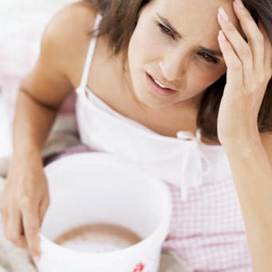
There are times that you experience a sudden bout of vomit coming your way but it never actually happens. You may be going through a dramatic sensation called dry heaving (retching). It’s an experience of someone who would involuntarily barf but without releasing any substance at all. This will usually occur when you have been vomiting actual substance first, and the real nauseous feeling lingers after it subsides. So even though the actual act of puking has stopped, the brain still produces sensation triggers that result to retching. It is a very uncomfortable state where there is a constant abdominal contraction, opting you to vomit but nothing ever comes out.
What causes dry heaving?
These dry heaves will often subside on their own, but extended and continuous cases should not be ignored. They may indicate something more serious and should be addressed adequately That is why it is imperative to know the causes of dry heaving.
- After effects of Nausea and Vomiting
The act of vomiting alone triggers dry heaves. Nausea you feel after puking is also considered as a reason for having got this condition. Acid Reflux can cause it as well.
- Stress and Anxiety
When you experience dry heaves in the morning when you get up without any reason at all, you may be experiencing stress and anxiety if it’s happening everyday. One of the typical example is feeling nervous during a big event where you feel your stomach tighten and the jerky feeling of vomiting.
- Infections in the Intestine
These infections can occur for a variety of reasons. Instances would include excessive intake of alcoholic beverages, food poisoning, and an empty stomach among others.
- Underlying Health Condition
It is a fact that when a person has a chronic renal disease, that individual will suffer from the condition as an after effect. People who also have low blood sugar and has to toke in insulin experiences retching.
- Gastric and Intracranial Conditions
One of the common reasons would be too much food intake, gastritis, appendicitis and a lot more gastric associated diagnosis. Intracranial conditions are considered more severe since it includes meningitis, brain tumor and other diseases that are associated with a severe headache.
- Pregnancy Symptoms
Dry heave is a very common symptom of pregnancy during the early stages. It may be triggered by the smell of the food or anything in general.
What are the symptoms?
Dry Heaves creates an uneasy and uncomfortable sensation to the person experiencing it. It would even be better if they could release something to soothe the distaste sitting in the stomach and throat.
- Mouth and Throat Dryness
If you feel your mouth and throat feeling dry after vomiting, it may be a sign of dry heaves. You will feel parched, but instead of consuming water, a dry heave will happen.
- Dizziness and Palpitations
 A person with severe headaches will feel nauseous and will want to release the throbbing feeling that will usually result to dry heaves. Palpitations are often caused by drinking too much coffee, and they are typical when these happens.
A person with severe headaches will feel nauseous and will want to release the throbbing feeling that will usually result to dry heaves. Palpitations are often caused by drinking too much coffee, and they are typical when these happens.
- Lost of Appetite and Abdominal Pain
One of the causes for people with retching is an empty stomach so sudden lost appetite is an indication that should not be ignored. And the most common symptom would be a real abdominal pain, it indicates that something is wrong inside your stomach and therefore a dry heave may be expected.
Home remedies on how to stop dry heaving
There are many remedies at home. You can even get an over the counter medicine in treating it immediately. However, a simple case of dry heaves can also be fixed at home.
- Hydrate yourself
It is essential that we drink a substantial amount of fluids every day. Dehydration is one of the reasons why we experience this condition, so drinking eight glasses of water every day is already a very efficient solution to stop dry heaving. Sports drinks that replenish the energy and fluids are also recommended. These drinks are best served cold as well since it helps soothe the heaving.
- Lessen your Caffeine intake
It may be addicting and can boost you to start up your day or any task, but caffeine can also damage your gastrointestinal tract. These injuries can cause palpitations and vomiting. It will be best to limit yourself and drink the appropriate amount of caffeine every day.
- Consume Sweet Foods
If you have low blood sugar, eating something sweet can not only help you regulate it but also avoid dry heaving caused by low insulin levels. By eating something sweet, you can modulate your blood sugar level as well.
- Feed Yourself something, Bland
Your mouth usually feels weird, and you could taste the bitterness of your palate causing you to dry heave. Eating dry crackers and tasteless toast would help alleviate the sensitivity in your palate. Food like cereals, eggs, and tofu are also high in fiber which helps stop the dry heave.
- Eat in Small Portions Constantly
Eating too much at once or eating nothing at all can cause this condition. So it is advised that you eat small portions, but you should eat on time and consistently. It is just a matter of control and reminding yourself that you have to take care of yourself.
These are very easy steps to avoid dry heaving, but you have to remember that even after these simple remedies and basic medicines, the heaving will not stop, it be best to visit your doctor at once. You may have an underlying condition that must be addressed.

